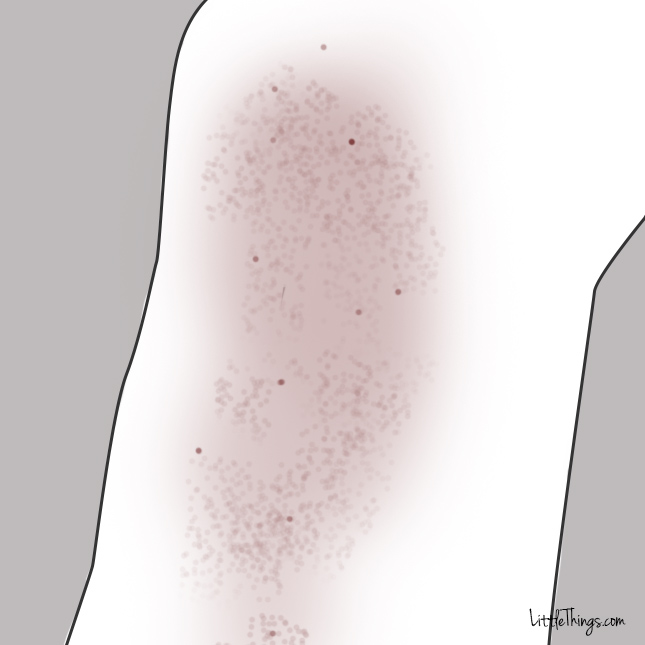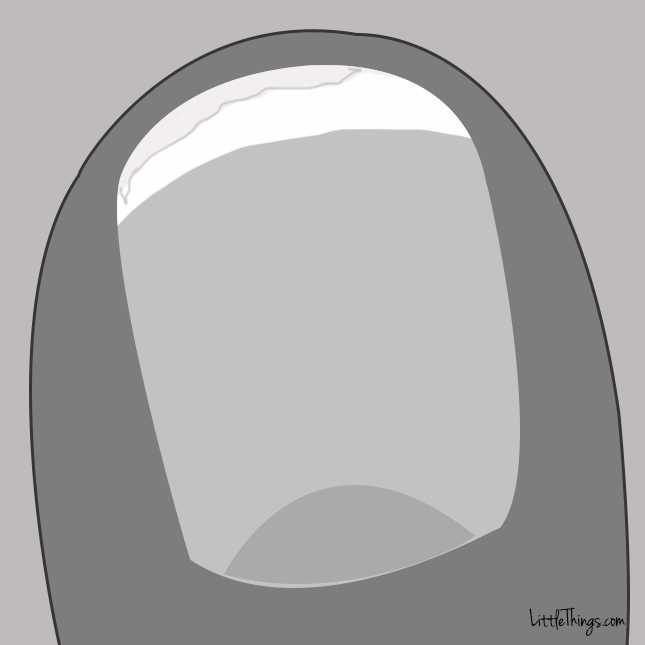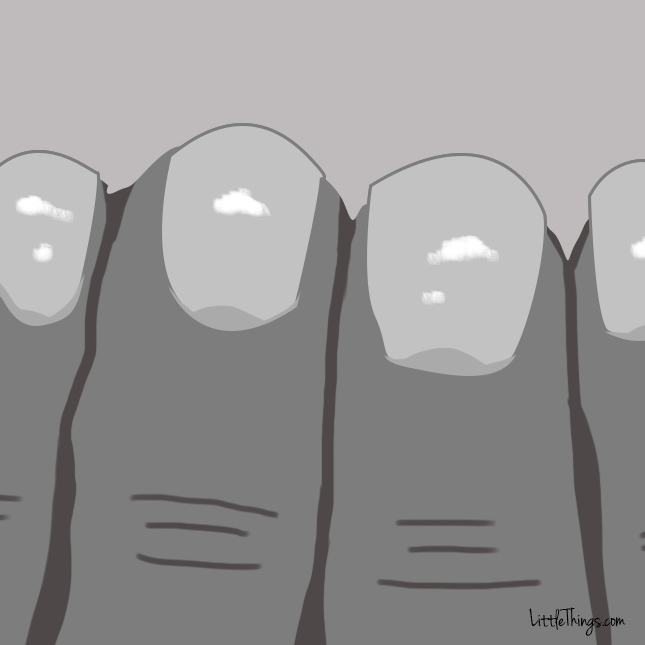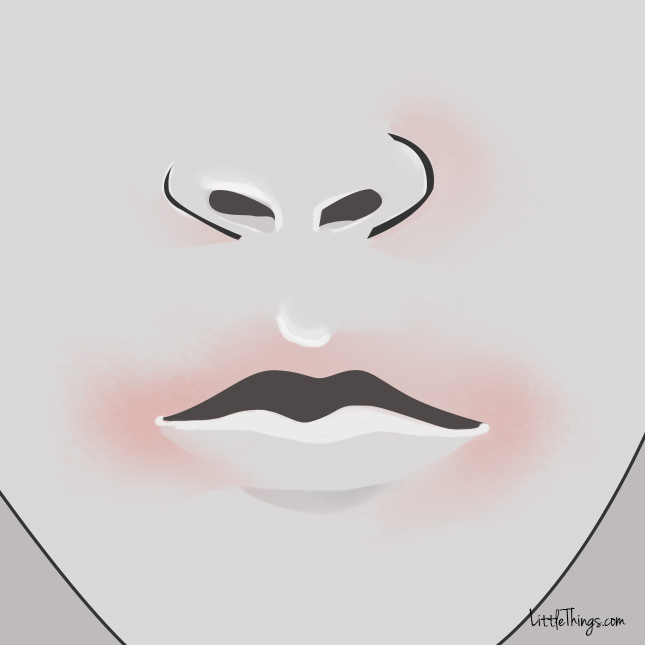Most of us think that we lead pretty healthy lives. Sure, we cut corners here and there, but generally, we're aware of the basics: limit junk food, drink water, move around, get good sleep.
And, thanks to all the research available to us — like how to spot the signs and symptoms of a thyroid issue — we know how to identify the bigger health issues in life.
But what about those everyday symptoms we tend to ignore? If we want to live the healthiest lives we can, we've got to take a closer look at our bodies — specifically, our nutritional needs.
In our exclusive investigation below, we explore some of the most common issues and what they mean. Most often, it turns out, there's a vital nutritional deficiency that has caused the problem.
Even though some of these symptoms are rather extreme, there are definitely ways to combat them. The directions shown below are mostly recommended by experts, but if your problem areas persist, it's best to have a doctor take a look.
Read on to find out what source of nutrition you may be lacking, and what to do about it. Please let us know what you think in the comments below!
Cold Hands

Most people blame having cold hands on a variety of things, including a weak immune system, bad blood circulation, and simply cold weather.
However, research has shown that cold hands could often point to an iodine deficiency. Iodine is an element that's found most prevalently in Earth's seas, and is vital to human health.
Our thyroid glands use iodine to make thyroid hormones. If there is a severe deficiency, the thyroid gland will swell up and cause a lot of pain. During the past few years, National Health Nutritional Examination surveys have indicated that iodine levels have declined by a staggering 50 percent.
Normal, healthy diets are no longer considered adequate to combat serious iodine deficiencies. Unfortunately, more and more people are depending on thyroid medicine.
Many nutritionists do recommend that sufferers increase their intake of sea vegetables, like seaweed. Cod, shrimp, tuna, and baked potatoes also have a higher iodine content.
Dry, Scaly Skin

Most often, we think dry, scaly, and flaky skin is caused by changes in the weather. And no doubt, cold weather can cause harsh changes in the way skin feels.
But did you know that a severe lack of vitamin A, or retinol, can lead to unhealthy symptoms in skin? Vitamin A strongly promotes skin cell turnover and helps to regulate several growth factors. Since the 1980s, retinol has also been commonly used to treat severe forms of acne and psoriasis, as it works in halting sebaceous gland activity.
Many medical professionals and dermatologists have dispelled the connection between skin health and nutrition — but just like internal organs of the body, outer skin can be deeply affected by nutritional intake.
Try eating foods that are high in vitamin A, such as red meat or seafood, cod liver oil, and cream and butter from pastured cows.
Soft, Brittle Nails

I've long believed that, to relieve problems related to our bones or fingernails, we simply had to dial up our intake of calcium.
However, it turns out that a magnesium deficiency can lead to all sorts of problems — including poor nail growth, high blood pressure, anxiety, and muscle pain, and weakness.
Hypoparathyroidism is a condition that can cause brittle nails, dry hair, cataracts, and tingling limbs. While this condition is commonly caused by injury to the parathyroid glands, it can also be caused by low levels of magnesium in the blood.
To intake higher levels of magnesium, try eating dark leafy greens, whole grains, fish, and dried fruit.
White Spots On Nails

Don't worry if you've got little, white spots showing up sporadically on your nails. Most people get them at one point or another in their lives.
However, these little spots could indicate a zinc deficiency. Though there are differing views on this (some still maintain that it's a calcium deficiency, and others a protein deficiency), it wouldn't hurt to up the intake on zinc-rich foods, like seafood, spinach, cashew nuts, beans, and mushrooms.
Ever notice redness around your nose and mouth? Click "Page 2" to see what that might mean…it's unbelievable!
Greasy, Red, and Scaly Skin

Many people suffer from skin conditions like rosacea and eczema. Most of the time, this points to a deficiency in riboflavin, or vitamin B2. Skin dryness and itching are typical symptoms, as well as cracking and sores at the corners of the lips and nose.
In most cases, dermatologists and specialists can diagnose the skin condition. But because we're investigating nutritional deficiencies, we must close in on vitamin B2, and how it functions in the body. Aside from helping produce red blood cells, it also protects the nervous system and enhances the immune system to fight diseases.
To up your intake of vitamin B2-rich foods, try eating soybeans, spinach, yogurt, beet greens, and turkey.
A Sore, Fissured Tongue

Generally, you can judge the levels of your vitamin B intake by observing what your tongue looks like. Healthy tongues are pink in color and smooth around the edges, without any weird coating or indentations.
But commonly, when a deficiency in vitamin B occurs, taste buds on the tongue will clump and fuse together, and pull apart from other clumps. This will often result in grooves or fissures on the surface of the tongue.
It's good to know that vitamin B3 is also an essential nutrient that helps combat nausea, anemia, headaches, high cholesterol, and fatigue.
To add more of this vitamin in your diet, try eating more fish, green peas, avocado, peanuts, and sunflower seeds.
Premature Gray Hair

Some people have naturally gray hair, and most of the time, spotting a few stray strands on your head is perfectly fine. In general, genes play a large role in determining when you'll start getting gray hairs.
But in some rare cases, a vitamin B-12 deficiency — or problems with the pituitary or thyroid glands — can cause premature graying.
According to Dr. Jeffrey Benabio, a dermatologist featured on WebMD, this can easily be corrected. Whether you choose to take vitamin supplements or change around your diet, a balanced intake of the vitamin will improve normal functioning of the brain and nervous system.
Try eating more salmon, white meat, bran cereal, and yogurt.
Painful, Sore Tongue With A Smooth Appearance

A folic acid deficiency may commonly lead to a swollen tongue and mouth sores. In addition, sufferers may feel fatigued, experience more gray hair growth, diarrhea, and develop oral ulcers.
The deficiency can be caused by a number of things, including drinking too much alcohol, eating overcooked vegetables, and not eating enough fruits and vegetables.
It's important to note that adults are recommended to have a daily folic acid intake of 400 micrograms. Pregnant women, on the other hand, should take 600 micrograms a day.
Try eating more dark leafy greens, lentils, peas, broccoli, okra, and asparagus.
Excessively Sweaty Head

Stored in the liver, vitamin D is a very important nutrient that helps you absorb calcium into the body. Dangerously low vitamin D levels can result in brittle bones.
The best way for your body to process this vitamin is by getting direct sunlight. A vitamin D deficiency is commonly linked to chronic sweating, lowered energy levels, muscle pain, and, in worst cases, even depression.
Try adding fatty fish, mushrooms, fortified milk, egg yolks, and other foods rich in vitamin D to your diet.
Please SHARE with friends and family so they can learn the signs of vitamin deficiency!




